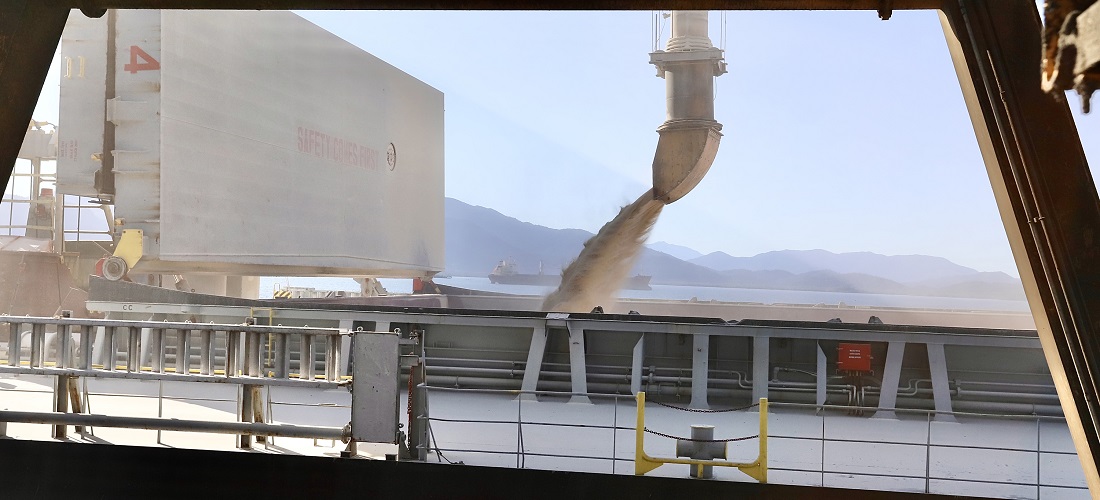
Nearly a quarter of Brazil’s sugar exports go to Arabs
Apr, 11, 2023 Posted by Sylvia SchandertWeek 202318
The Arab market has a significant share among the destinations of sugar exported by Brazil. Last year, the region accounted for 23% of the country’s total product exports. According to data from Brazil’s Foreign Trade Secretariat (SECEX), compiled by the Arab Brazilian Chamber of Commerce (ABCC), Brazil exported USD 11.2 billion in sugar in 2022, a 20% increase over 2021. The figure translates to 27.4 million tonnes.
Algeria clinched second place as the leading importer of Brazilian sugar in 2022, with USD 778.6 million in purchases. Morocco ranked fourth with over USD 636 million. The United Arab Emirates, Saudi Arabia, and Egypt came eighth, ninth, and tenth, respectively. China was the leading importer of Brazilian sugar last year, with USD 1.6 billion in revenue.
For the professor of Geopolitics at Escola Superior de Propaganda e Marketing (ESPM) college, Leonardo Trevisan, Algeria stood out in the world and among the Arab countries because, in addition to being a big country, it also has a strong food industry and serves as a production hub for all of North Africa.
According to the professor, the excellent relationship between the countries of the Arab League and Brazil has led to these markets taking prominent positions among the importers of Brazilian sugar.
“It’s been years since this commercial relationship for trading sugar began. It is not something recent; it started many decades ago, I would say, around the 1970s and 1980s, until it acquired the format it has today. It is a well-built relationship and has been strengthened over the years,” explains Trevisan.
Exports of foodstuffs, produced mainly in Brazil’s Northeast and Mid-South regions, stand out for three reasons: First, existing regulations controlling demand and supply. They continuously assess what is produced and sold, which helps form the final price. Regarding Brazil’s biggest producing states, São Paulo and Pernambuco stand out.
According to Trevisan, the other two reasons for the success of exports are the Brazilian infrastructure and tradition in the area. “There is an extensive productive structure around the plants, more advanced than what we see in India, for instance, and we have very consolidated shipping assets acquired in this area. When we talk about sugar, we have a lot of tradition; we are a country with 200 years of experience in this production.”
Brazil, one of the world’s biggest exporters
According to the Geopolitics professor, Brazil is among the largest sugar exporters in the world, accounting for over 45% of total trades.
India appears as the country’s main competitor. However, as it has a larger population to feed (over 1.4 billion people), a significant part of the production is consumed locally.
Therefore, Brazil has a great chance to keep growing in this market. Due to the climate that has favored sugarcane plantations, expectations for the 2022/23 harvest are 1.8 million tonnes more will be produced compared to the previous harvest, reaching 32 million tonnes.
There is also the forecast of an increase in the product’s price, which could be up to 30% above what it was two years ago. “Furthermore, Datagro’s projection is for world consumption to be 2.5% higher in this 2022/23 harvest than the last 10-year average,” added Trevisan, mentioning Datagro, an independent agricultural consulting firm.
The ESPM professor also assessed the list of major buyers of Brazilian products beyond sugar. The United States and China come in the top positions, especially in imports of agribusiness produce.
The countries of the League of Arab States are in third place as the biggest importers of products from Brazil. In addition to sugar, they also buy maize, iron ore, poultry, soybeans, and beef.
“We sell more to them than to the European Union,” stated Trevisan regarding the Arab countries. According to him, this relationship is based on trust and is already consolidated. “Brazil also buys many of their products, such as petroleum derivatives, fertilizers, and agricultural insecticides. So it’s a win-win.”
Source: ANBA
To read the original news report, access: https://anba.com.br/en/nearly-a-quarter-of-brazils-sugar-exports-go-to-arabs/
-
Ports and Terminals
Feb, 05, 2024
0
São Francisco do Sul Port joins United Nations Global Compact
-
Other Logistics
Mar, 20, 2024
0
VLI appoints new directors for its Northern and Eastern logistics corridors
-
Shipping
Jan, 16, 2025
0
Shipping Giants Maersk and Hapag-Lloyd See No Immediate Return to Red Sea
-
Ores
Jan, 02, 2024
0
Iron ore set on ascendant path in 2024

